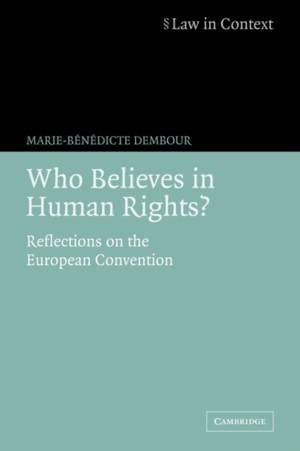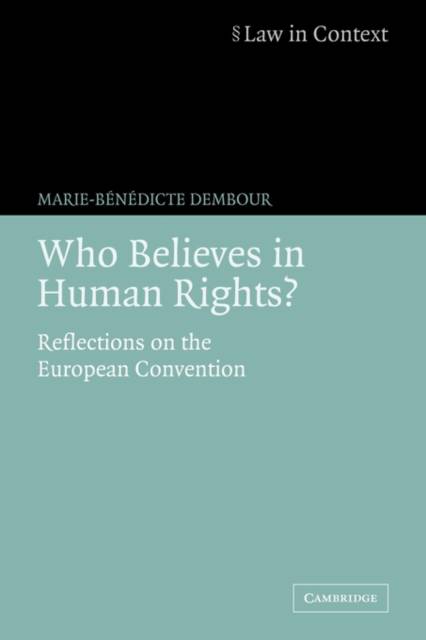
- Afhalen na 1 uur in een winkel met voorraad
- Gratis thuislevering in België vanaf € 30
- Ruim aanbod met 7 miljoen producten
- Afhalen na 1 uur in een winkel met voorraad
- Gratis thuislevering in België vanaf € 30
- Ruim aanbod met 7 miljoen producten
€ 90,95
+ 181 punten
Omschrijving
Many people believe passionately in human rights. Others - Bentham, Marx, cultural relativists and some feminists amongst them - dismiss the concept of human rights as practically and conceptually inadequate. This book reviews these classical critiques and shows how their insights are reflected in the case law of the European Court of Human Rights. At one level an original, accessible and insightful legal commentary on the European Convention, this book is also a groundbreaking work of theory which challenges human rights orthodoxy. Its novel identification of four human rights schools proposes that we alternatively conceive of these rights as given (natural school), agreed upon (deliberative school), fought for (protest school) and talked about (discourse school). Which of these concepts we adopt is determined by particular ways in which we believe, or do not believe, in human rights.
Specificaties
Betrokkenen
- Auteur(s):
- Uitgeverij:
Inhoud
- Aantal bladzijden:
- 340
- Taal:
- Engels
- Reeks:
Eigenschappen
- Productcode (EAN):
- 9780521683074
- Verschijningsdatum:
- 23/10/2006
- Uitvoering:
- Paperback
- Formaat:
- Trade paperback (VS)
- Afmetingen:
- 152 mm x 229 mm
- Gewicht:
- 498 g

Alleen bij Standaard Boekhandel
+ 181 punten op je klantenkaart van Standaard Boekhandel
Beoordelingen
We publiceren alleen reviews die voldoen aan de voorwaarden voor reviews. Bekijk onze voorwaarden voor reviews.









